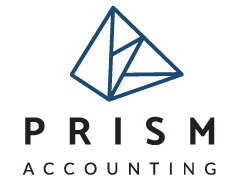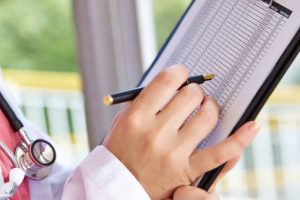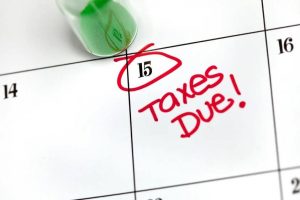After a temporary slowdown due to pandemic, ATO audit activity is now back in full swing. It is expected that this year the ATO target hotspots for audit of individual taxpayers will be cryptocurrency, share transactions, rental property expense claims and work-related expenses. Below, we have summarised the most common tax return mistakes doctors make in their individual tax return.
According to the ATO tax gap summary findings, it was estimated that the overall tax gap for 2018-2019 year (the last year for which estimates were made) was $33.5 billion, and the tax gap on individual tax return was approximately $19.9 billion. In comparison, the tax gap for large corporations was $2.6 billion for the same year. With forecasted cash deficit in Federal Budget of 106.6 billion for 2022, the ATO will be busier than ever with their audit activities to ensure taxpayers pay correct amount of tax.
The ATO uses sophisticated analytical models to cross-match data received from multiple sources through electronic lodgment channels to identify taxpayers making erroneous claims in their tax returns and flag high-risk returns requiring attention. Some of the data obtained from third parties is used to populate taxpayer’s Prefilling Reports information, including salary earnings, employee termination payments, government payments, taxable superannuation payments, interest and dividends, income from employee share schemes and managed funds. In the last few years, the ATO expanded their pre-filling services to include information on disposal of capital assets, such as shares and real property.
Common tax return mistakes doctors make in individual returns
Work-related expenses for salaried medical professionals:
– claiming a “standard” deduction under $300 where no actual expenses have been incurred
– claiming travel and car expenses made for private purposes, including travel between home and usual place of work
– claiming travel and overtime meal expenses per diem where conditions for the expense have not been satisfied or where no related allowances have been paid by employer
– claiming uniform, protective clothing and laundry expenses on items of conventional clothing and footwear
– claiming ineligible home office expenses, such as cost of occupancy (e.g. rent, mortgage interest, rates, land tax)
– claiming deduction for self-education expenses where the expenses have no direct connection to current work activities
– claiming expenses that are reimbursed by employer
– claiming immediate deductions for purchase of assets costing $300 or more that have effective life of more than one year
– not apportioning deduction for private (or non-work related) component of the expense
Other deductions:
– claiming ineligible deductions for income protection premiums (e.g. Trauma Insurance, Needlestick cover or Life Insurance components)
– claiming deductions that are private or domestic in nature
– making ineligible claims for gifts and donations, e.g. to organisations not registered as tax-deductible gift recipients, or where something was obtained in return for a donation
Rental property and other investments:
– claiming deductions for costs related to purchase of property
– claiming deductions for repairs of defects existing at the time of property purchase
– claiming deductions for works that constitute improvements rather than repairs
– incorrectly classifying repairs, capital works and depreciable assets under the capital allowance provisions
– claiming interest on portion of loan that is not related to purchase, improvements, maintenance or running costs of the rental property
– claiming expenses while the property is not rented or being genuinely available for rent
– claiming travel expenses in relation to rental property
– claiming expenses in relation to vacant land
– claiming immediate deduction for borrowing expenses (expenses related to loan establishment)
– claiming deductions for investment advice fees that are capital in nature (e.g. for drawing up an investment plan)
– not reporting gains from cryptocurrency exchange transactions
Business-related expenses:
– claiming deduction for ineligible entertainment expenses
– claiming deduction for private or domestic expenses
– incorrectly calculating GST on supply of medical services
– including GST credits on expense amounts by GST-registered doctors
– claiming deductions on fines and penalties (except where they arise under a contract)
– not applying small business concessions correctly
– claiming superannuation expenses for employees on accrual basis
– claiming ineligible car expenses (e.g. travelling from home to a usual place of business) or claiming a percentage on car costs where logbook was not maintained
– claiming car expenses for transporting “bulky equipment” between home and work for relatively small items (e.g. doctor bag) or where the items can be safely kept on business premises.
– claiming travel expenses related to private matters or not keeping appropriate evidence
– claiming ineligible business expenses where PSI (personal service income) rules apply, such as home occupancy expenses (e.g. rent, mortgage interest, rates, land tax) and payments to associates for support work.
– claiming losses from other unrelated business activities where non-commercial losses tests are not satisfied
These are most commonly occurring tax return mistakes doctors make in individual tax returns. The list is by no means exhaustive. Constant legislative changes and growing complexity of the tax law in Australia make it increasingly difficult for taxpayers to apply the rules correctly and avoid making tax mistakes.
To ensure you declare your income and claim your deductions correctly, speak to an experienced Accountant specialising in medical industry. Our Medical Accounting experts are here to help doctors with their tax needs.
Disclaimer: All the information provided on this website is of general nature and does not constitute tax, legal or financial advice. It does not take into account your personal circumstances and is not intended to replace consultation with a qualified professional.






